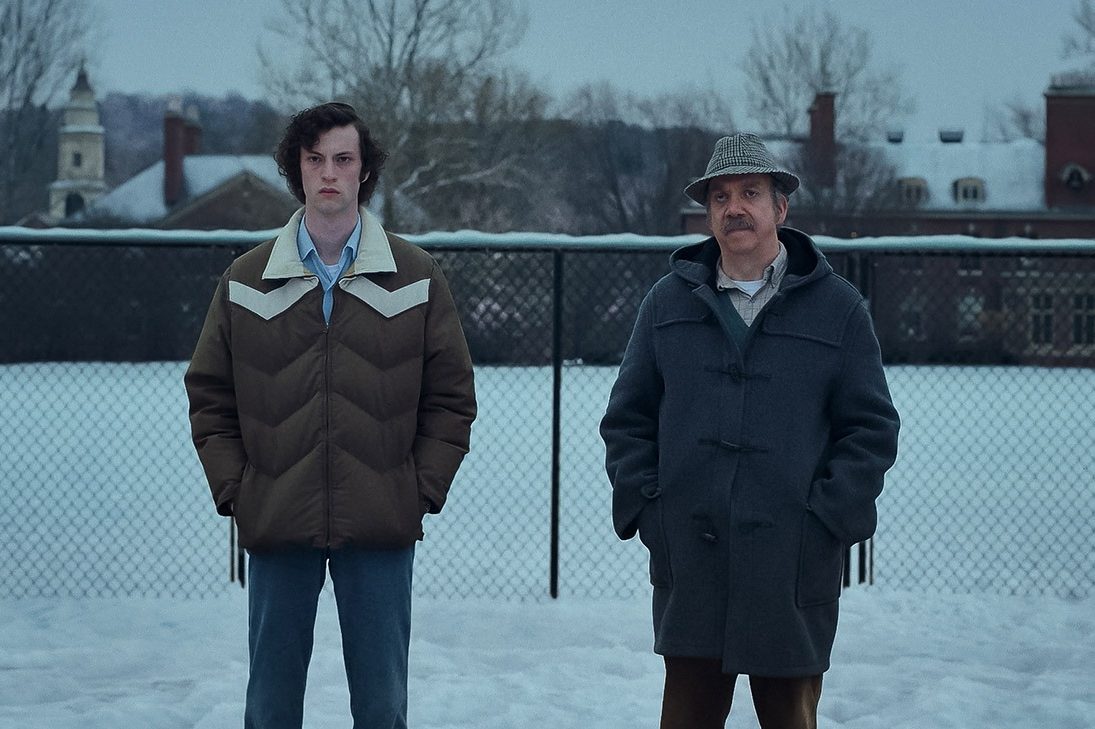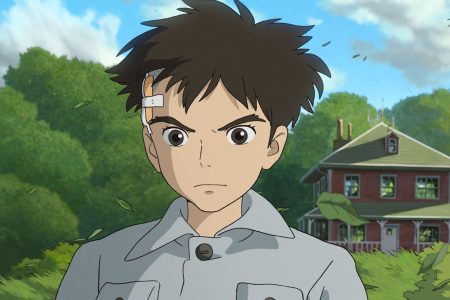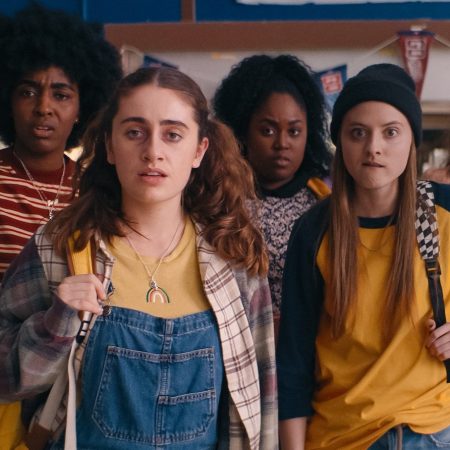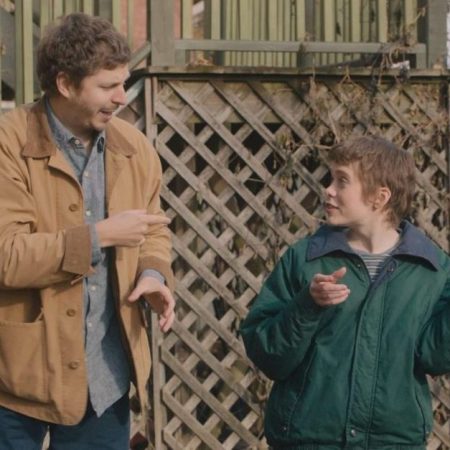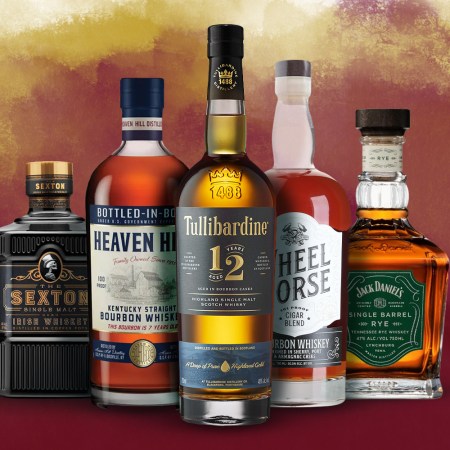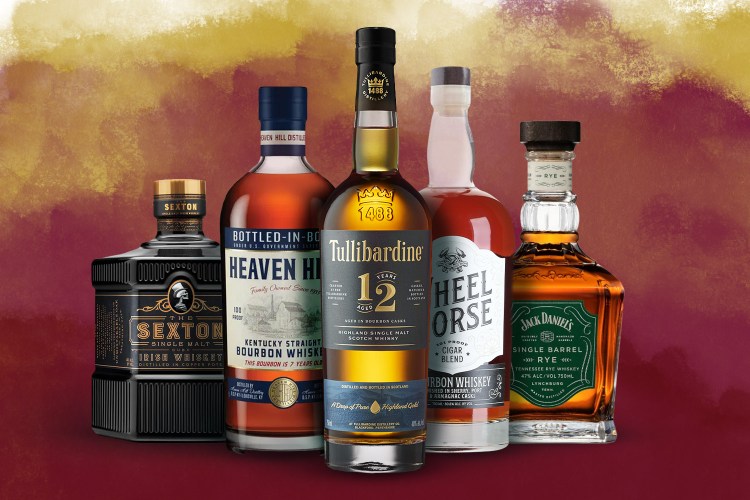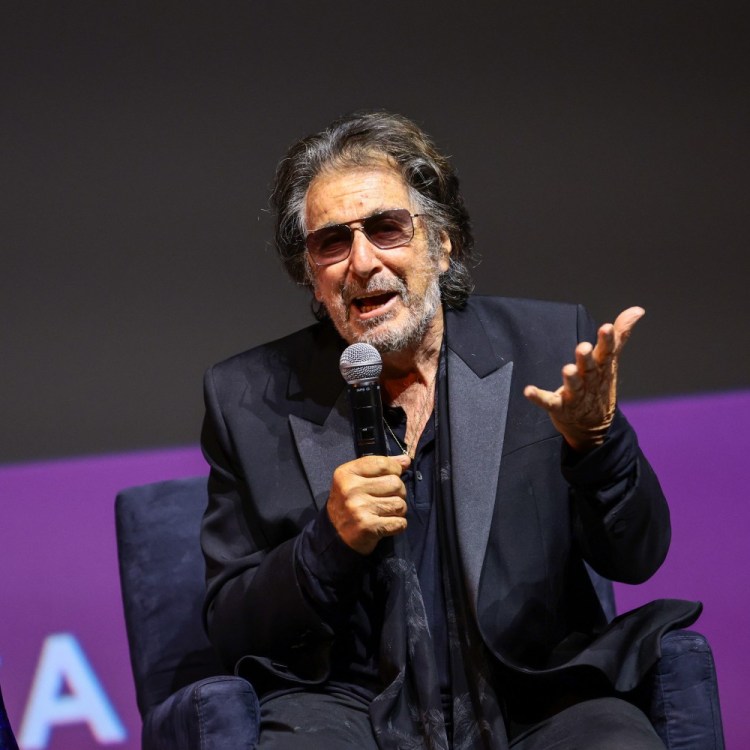The first Christmas miracle in the instant Yuletide staple The Holdovers is star Dominic Sessa, plucked out of the central-Massachusetts boonies from a boarding school not so dissimilar to Barton Academy, the one that provides the setting for a dramedy to make hearts grow three sizes. (Judging by the wicked-hahd accents performed to varying degrees of success, it’s modeled on Phillips Andover, a feeder for the halls of hegemonic power that once participated in a student exchange with Nazi Germany.) As Angus, a bright yet insubordinate junior ditched by Mom and her fat-pocketed new beau to spend the holidays on campus with the rest of the unwanted, the revelatory Sessa projects a confidence and control far beyond his background in high school theater. He wields both the chiseled jaw and crumpled-up juvie anger of a young movie star, layering surliness over guardedness over tenderness that he withholds before it can cloy. While the expert tutelage of actors’ director Alexander Payne surely helped him along, and the role meets him halfway with richness belying its archetypal familiarity, he skillfully orchestrates the distancing impulse to detach that turns disaffected boys into brittle, regretful men.
Foremost among his accomplishments, he holds his own against a scene partner of Paul Giamatti’s stature, made extra-intimidating by an off-axis glass eye that gives him the appearance of seeing all, except himself. Ancient Civilizations teacher Paul Hunham, an animate “bah humbug” who doesn’t much care that no one wants to hear him spout Aeneas quotations, prefers to live a monk’s ascetic life of the mind and says so with a pride masking plenty. Typical of adults with coarse exteriors, he’s convinced himself that his solitude in a parapet of books proves a stand of principle, the same scruples that prevented from passing the brainless shitheel son of a senator in the previous term. Which is how he drew the short straw to stay over the break and mind the students with nowhere to go, a crew soon reduced to a trinity of lonely souls finding a little hard-earned solace during the bleakest, most contemplative weeks of the year.
For the first few days, Angus bunks with four other “holdovers,” all of them squabbling and scrapping as if on an Animal Planet episode about the pack behaviors of teenage males. The Mormon kid gets bullied for being Mormon; the Asian kid gets bullied for being Asian; the bully gets pushback only from Angus, more out of mutual animosity than an impulse to defend the defenseless. Mr. Hunham rides them as if class is still in session, filling what should be their vacation time with exercise in frigid temperatures, bathroom breaks that must be formally requested, and hours of diligent, silent study. When he catches them mid-fight and forces one little weasel to snitch by threatening punishment for all if no one comes forward, the pompous academic delivers an unwitting lesson about compassion and mercy by lacking them. It won’t be long until he’s learned a thing or two himself, “educator realizes the students really teach him” being the primary cliché in a handful redeemed by nuanced, judiciously-measured acting and writing.
After one straggler’s dad caves and picks him up along with the three others, Angus unable to join them due to his mother’s failure to pick up the phone, the true cast comes together and the film comes alive like Frosty the Snowman. The stubborn battle of wills between Paul and Angus is moderated by Mary, the head lunch lady mourning her son slain in Vietnam. The specter of war looms over the slavishly recreated year of 1970, dressed with vibrating exercise machines and real live porno mags to match the digital-vintage image textures. If Angus gets booted from an institution of lower learning for the fourth time, it’s off to military school, and then to certain death in the rice paddies overseas. A twofold path forks before him: fix your heart or die. Paul faces the very same stakes, just on a much longer timeline.
With Mary as a trusty check to their solipsistic bullshit — through which, crucially, she unpacks heavy baggage of her own, as opposed to simply advising the thick-headed whites — the two kindred misanthropes ever-so-slightly warm up to each other over an outing to Boston for burgers and a beer Paul won’t let his underage charge have. (Little does Angus know, he’s going to be sitting pretty when Massachusetts changes its drinking age to 18 in 1973.) Paul, meanwhile, sucks down bourbons with the blinded self-assurance of the professional able to do his job pretty effectively from under the influence. Enough has conspired against him, whether it’s his rare medical condition emitting the aroma of rotten fish or a past transgression that tests his resolve never to lie, that he’s withdrawn into a cocoon of masturbatory erudition. In accepting the babysitter gig, Paul quotes Cicero’s axiom that “not for ourselves alone are we born.” But he can’t really believe it until he recognizes someone as broken as he is, with whom he can bond over taking the same antidepressant and share in their hard-shelled worldview.
“The Boy and the Heron,” Hayao Miyazaki’s Final Film, Is a Profound Tale of Loss
The “Spirited Away” director’s latest made its debut at the Toronto International Film Festival this weekendAny number of terrible versions of this concept can be readily theorized, slathering on the absolution with weepy monologuing about harm and healing. A viewer can spend the whole movie waiting for Payne to go too far, though loyalists to his polarizing body of work know not to worry about overweening sentimentality from a guy who inserts his director credit over Paul’s empty chair just as one of his colleagues calls him a mean old bastard. Where Payne’s longstanding everything-sucks brand of Gen-X pessimism made early works like his abortion comedy Citizen Ruth funny and spiky, it now brings a credibility to the tentative embrace of emotional generosity that began somewhere around Nebraska, veered off course with the letdown of Downsizing, and pays crushing dividends here. It’s a bitter pill that sends so many of us on doomed crusades to move the implacable, but love carries a unique weight when offered by someone usually stingy with it.
Without weeping or hugging, in an unspoken language made up mostly of pregnant eye contact between men uncomfortable vocalizing intimacy, Paul communicates to Angus the old instructor’s credo that he’s only so tough because he wants the best for his pupils — and in Angus’ case, better than he could manage for himself. An act of selflessness in a pivotal moment sends the boy off to flourish as Paul failed to, though giving Angus his future leads the still-whip-sharp elder to the epiphany that he could have one for himself, too. A door to a brighter tomorrow starts to creak open for Mary as well, beckoning her to let some love back in. She comes to realize that the greatest tribute to her son’s memory would be for her to live well and broadly, to chase the fulfillment he wasn’t able to. Paul arrives on the other side of the same insight, not yet dead but sending Angus to thrive in his stead. If this isn’t the meaning of life — and it very well may be, the occasional morsel of altruism the only thing making this hellacious, indifferent world worth inhabiting — at least it’s the meaning of Christmas. With each passing year, giving gifts brings a little more joy than receiving them. Having things, cookies or books or knowledge, is nice. Having people is everything.
This article was featured in the InsideHook newsletter. Sign up now.
